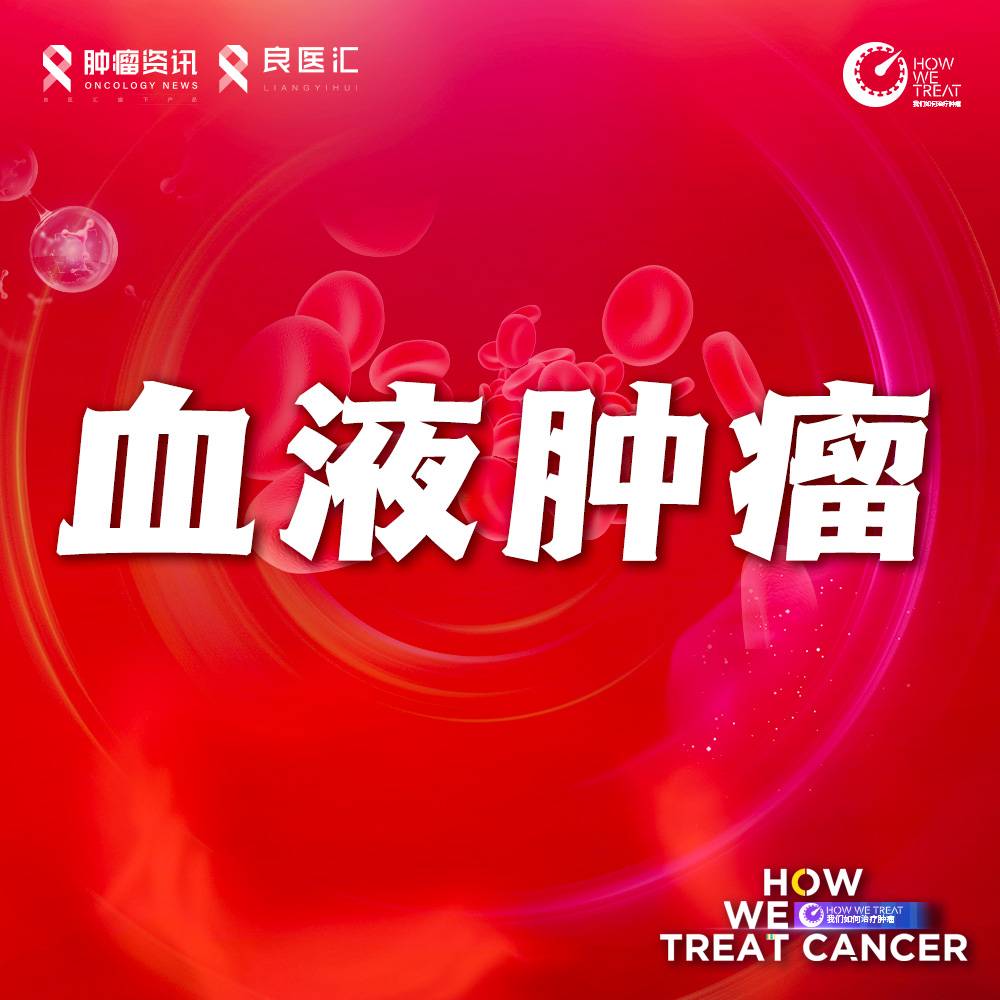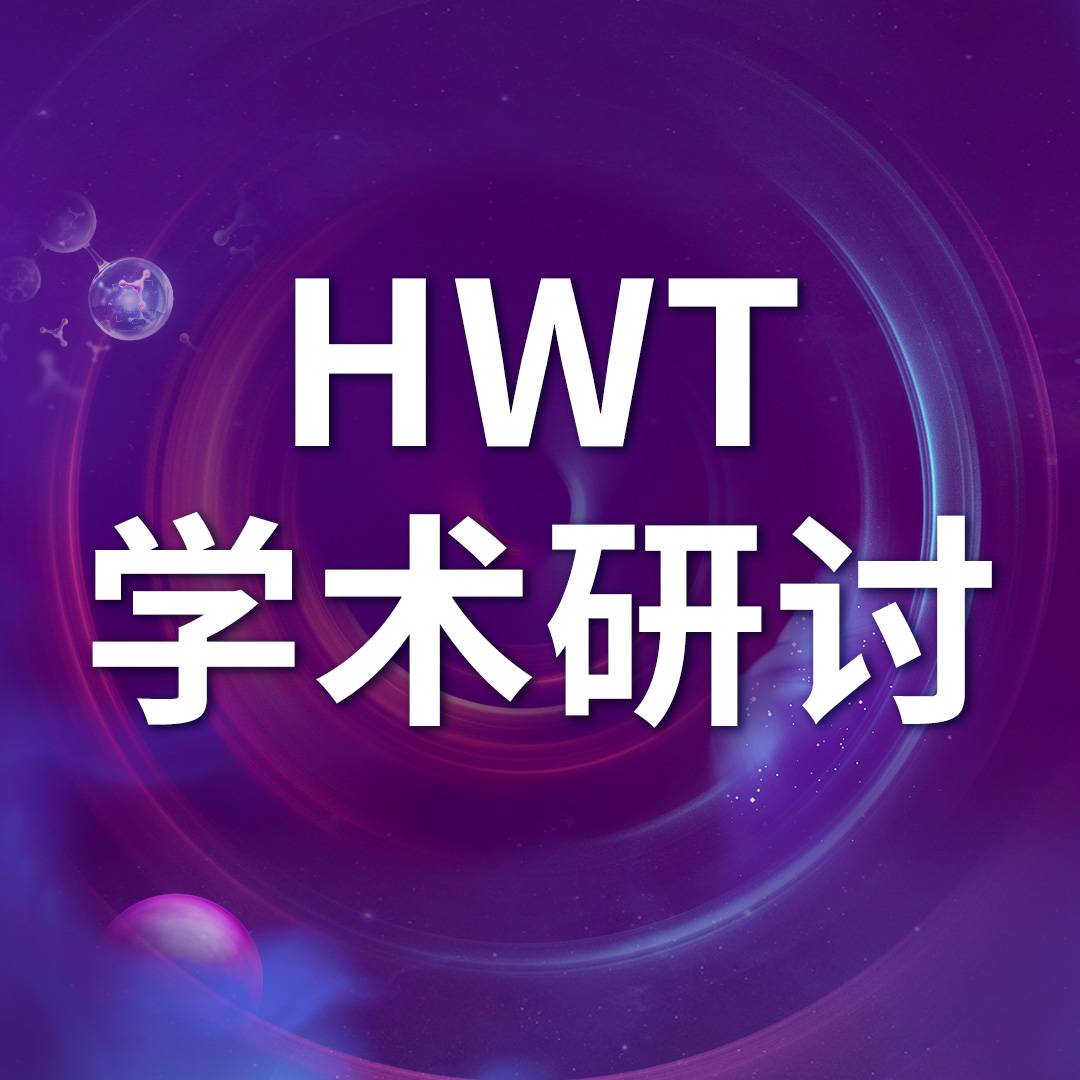徐医附院细胞研究和转化医学中心副主任
徐医附院血液科科副主任,淋巴瘤病区主任
中华医学会血液学分会淋巴细胞疾病学组委员
中国抗癌协会淋巴瘤专委会委员
中国EBV相关疾病工作组秘书长
中国抗癌协会血液肿瘤专业委员会青年委员
中国抗癌协会血液肿瘤委员会慢淋工作组委员
中国抗癌协会第一届T细胞淋巴瘤工作组委员
中国老年医学会血液学分会淋巴瘤学组委员
江苏省淋巴瘤联盟副主席
江苏省医学会血液学分会淋巴瘤/骨髓瘤学组委员
江苏省“六大人才高峰”培养对象
江苏省“科教强卫工程”青年医学人才
霍奇金淋巴瘤治疗现状和困境
霍奇金淋巴瘤(HL)在接受一线方案治疗后,10-15%的局限期患者和30-40%的晚期患者会面临复发[1, 2]。对于难治复发性经典型霍奇金淋巴瘤(r/r cHL)的治疗,传统的挽救性大剂量化疗(HDCT)桥接自体干细胞移植(ASCT)难以获得长期的生存获益,且HDCT和多线化疗带来的毒性较高,甚至存在发生二位肿瘤的远期风险,而不适合ASCT的患者,中位OS仅为1年[3, 4]。2021年欧洲血液学会(EHA)年会上公布的B-HOLISTIC研究中国亚组数据显示,初诊cHL和r/r cHL患者的5年PFS率分别为55.1%和29.8%。在该项国际多中心回顾性临床研究中,大多数东亚国家r/r cHL患者接受的治疗为HDCT序贯ASCT[5]。

图1. B-HOLISTIC研究中国亚组生存曲线
EBV病毒(EBV)驱动和9p24扩增介导的PD1/PDL1上调是cHL典型的病理特征,参与了免疫逃逸的发生[6]。PD1/PDL1抗体单药治疗r/r cHL可以获得17%-62.9%的CR率[7-9]。而靶向CD30的抗体欧联药物(ADC)维布妥昔单抗(BV)单药治疗r/r cHL,CR率可以达到24%-34%[10-12]。而基于BV,PD1/PDL1抗体以及其他联合治疗策略,则可以获得61%-95%的CR率[13-16]。
但是,即便在PD1/PDL1单抗和BV时代,仍然存在未被满足的临床需求,亟待寻求新的治疗办法[17-19]。嵌合抗原受体T(CAR-T)细胞治疗通过基因编辑,患者T淋巴细胞获得了精准靶向攻击肿瘤细胞的能力,CAR-T细胞治疗在B细胞血液肿瘤的治疗中,取得了较大成功,多款产品和适应症获批上市[20-23]。在真实世界中,年龄和体能不再是影响CAR-T细胞治疗的关键影响因素,适应症范围也在不断扩大[24-26]。寻求靶向cHL相关抗原的CAR-T细胞治疗有望成为PD1/PDL1单抗和BV时代之后的重要治疗选择。

图2. BV Ipi(b-I)、BV Nivo(b-N)和BV Nivo-Ipi(b-N-I)治疗组合的生存曲线;A:PFS; B:OS
CD30是CAR-T治疗的理想靶点
CD30是一种TNFR超家族细胞膜蛋白,是淋巴细胞活化相关的抗原,正常表达在活化的T/B细胞上,广泛表达于Reed-Sternberg(RS)细胞上,是cHL重要的诊断标记[27]。当CD30配体结合到CD30后,TRAF蛋白将介导CD30受体发出的信号,继而活化下游多个信号通路,调控细胞的增殖,凋亡等生物学行为[28]。

图3. CD30介导的下游信号通路
因此,CD30也是CAR-T细胞治疗的理想靶点[29]。截止目前,在Clinical Trial注册的在研靶向CD30 CAR-T细胞临床试验共23项,其中来自中国的注册临床试验9项。早在1998年发表的第一代靶向CD30的CAR-T研究,是可以追溯的较早针对cHL的CART细胞临床研究,证明了靶向CD30 CAR-T细胞治疗的可行性[30]。虽然造血干细胞以及活化T/B细胞也表达CD30分子,有潜在脱靶可能。但由于干细胞CD30抗原表达较弱,且干细胞具有独特的高表达SP6/P19分子,可以抵抗穿孔素颗粒酶的攻击和抗凋亡作用,靶向CD30-CAR-T细胞并不会造成干细胞损害以及T/B细胞的分化[31]。

图4. 抗CD30-CART不影响造血干细胞的集落分化/不影响T/B细胞分化
抗CD30 CAR-T治疗现状和优化策略
在过去的二十年中,靶向CD30 CAR-T细胞治疗r/r cHL的临床研究进展缓慢,总体获得的ORR可以达到30%-40%,且深度缓解较低,但具有较好的安全性,≥3级细胞因子释放综合征(CRS)基本在0%-5%,≥3级免疫效应细胞相关神经毒性综合征(ICANS)基本在0-2%[32]。为进一步提高靶向CD30 CAR-T的疗效,一些积极的措施逐渐被尝试。苯达莫司汀联合福达拉滨的清淋方案,有助于提高靶向CD30 CAR-T细胞治疗的早期应答,可以达到59%的CR率和72%的ORR[33]。共表达CCR4的CAR-T策略,有效促进CAR-T细胞的游走和归巢,增强杀瘤效应[34]。而通过联合CSF-1受体抑制剂可以有效解除MDSC的抑制,期待未来可以进入临床进行验证[35]。相比较于常规剂量(*10^6/kg)的CART治疗,高剂量(*10^7/kg)可以在靶向CD30 CAR-T细胞的治疗中获得更好的治疗应答[36]。周剑峰和张同存团队探索的第三代靶向CD30 CAR-T,有助于提高疗效[37, 38]。此外,由于20-40%的cHL为EBV驱动[39],选择EBV-CTL作为工作细胞制备CAR-T,可以获得CAR-T和EBV-CTL叠加的杀伤效应[40]。此外,针对EBV阳性r/r cHL,靶向EBV编码抗原的CAR-T细胞治疗也是未来的发展方向[41]。基于记忆性T细胞来源的CAR-T细胞也具有更好的杀瘤效应[42]。

图5. 过表达CCR4有助于促进抗CD30-CART的“归巢”并增强CART的杀伤效应
靶向CD30 CAR-T的联合治疗策略
CAR-T细胞的联合治疗策略也是目前重要的临床实践和未来的探索方向。CAR-T细胞在体内激活之后,约30%细胞将会上调PD1分子,诱导CAR-T细胞耗竭,而通过PD1敲除或者联合可以有效促进CART的再激活和二次扩增[43, 44]。桑威教授和李彩霞教授团队在一项靶向CD30 CART细胞治疗的多中心临床研究中证明了高剂量(*10^7/kg)CAR-T细胞可以获得更好的疗效,此外,在联合了PD1抗体之后,可以达到80%的CR和100%的ORR[45]。在可评估的12例患者中,只有1例(8.3%)患者出现3级CRS,无任何级别ICANS发生。在该研究中,部分患者接受了在CAR-T细胞治疗后序贯HSCT和二次CAR-T的三明治疗策略,维持了较好的疗效,总体达到了70%的5年OS。黄亮教授团队寻求自体移植联合CD30 CART的策略治疗CD30阳性淋巴瘤也获得较好疗效[46]。

图6. PD1增强抗CD30 CART细胞治疗

图7. HSCT序贯抗CD30 CART治疗r/r cHL安全有效
靶向CD30 CAR-T治疗的未来展望
综上,靶向CD30 CAR-T是r/r cHL尤其是PD1/BV治疗失败患者重要的补充,且具有较高的安全性,年龄和体能也不再是CAR-T细胞治疗需要逾越的绝对障碍。由于cHL有效抗原载量较低,推荐高剂量的(*107/kg)给药剂量。而通过联合PD1/PDL1单抗以及HSCT,可以进一步提高抗CD30-CAR-T细胞治疗的疗效。对于EBV阳性cHL,可以考虑选择靶向EBV编码抗原,如靶向gp350的CAR-T细胞进行治疗。此外,尚未解决的问题包括CAR技术改进,可溶性PD1/CD30的影响,淋巴瘤微环境对CAR-T细胞治疗的影响,优化的预处理方案以及联合等增效策略需要进一步探索。
单位:徐州医科大学附属医院血液科淋巴瘤中心
1. Ansell, S.M. Hodgkin lymphoma: 2023 update on diagnosis, risk-stratification, and management[J]. Am J Hematol, 2022. 97(11): 1478-1488.
2. Gillessen, S., A. Plütschow, M. Fuchs, et al. Intensified treatment of patients with early stage, unfavourable Hodgkin lymphoma: long-term follow-up of a randomised, international phase 3 trial of the German Hodgkin Study Group (GHSG HD14)[J]. Lancet Haematol, 2021. 8(4): e278-e288.
3. Fermé, C., N. Mounier, M. Diviné, et al. Intensive salvage therapy with high-dose chemotherapy for patients with advanced Hodgkin's disease in relapse or failure after initial chemotherapy: results of the Groupe d'Etudes des Lymphomes de l'Adulte H89 Trial[J]. J Clin Oncol, 2002. 20(2): 467-75.
4. Schmitz, N., B. Pfistner, M. Sextro, et al. Aggressive conventional chemotherapy compared with high-dose chemotherapy with autologous haemopoietic stem-cell transplantation for relapsed chemosensitive Hodgkin's disease: a randomised trial[J]. Lancet, 2002. 359(9323): 2065-71.
5. Ferhanoglu, B., T.M. Kim, A. Karduss, et al. Treatment pathways and clinical outcomes in Hodgkin lymphoma outside Europe and North America: results from the international, multicenter, retrospective, B-HOLISTIC study[J]. Leuk Lymphoma, 2022: 1-14.
6. Green, M.R., S. Monti, S.J. Rodig, et al. Integrative analysis reveals selective 9p24.1 amplification, increased PD-1 ligand expression, and further induction via JAK2 in nodular sclerosing Hodgkin lymphoma and primary mediastinal large B-cell lymphoma[J]. Blood, 2010. 116(17): 3268-77.
7. Song, Y., Q. Gao, H. Zhang, et al. Treatment of relapsed or refractory classical Hodgkin lymphoma with the anti-PD-1, tislelizumab: results of a phase 2, single-arm, multicenter study[J]. Leukemia, 2020. 34(2): 533-542.
8. Shi, Y., H. Su, Y. Song, et al. Safety and activity of sintilimab in patients with relapsed or refractory classical Hodgkin lymphoma (ORIENT-1): a multicentre, single-arm, phase 2 trial[J]. Lancet Haematol, 2019. 6(1): e12-e19.
9. Ansell, S.M., A.M. Lesokhin, I. Borrello, et al. PD-1 blockade with nivolumab in relapsed or refractory Hodgkin's lymphoma[J]. N Engl J Med, 2015. 372(4): 311-9.
10. Moskowitz, C.H., A. Nademanee, T. Masszi, et al. Brentuximab vedotin as consolidation therapy after autologous stem-cell transplantation in patients with Hodgkin's lymphoma at risk of relapse or progression (AETHERA): a randomised, double-blind, placebo-controlled, phase 3 trial[J]. Lancet, 2015. 385(9980): 1853-62.
11. Younes, A., A.K. Gopal, S.E. Smith, et al. Results of a pivotal phase II study of brentuximab vedotin for patients with relapsed or refractory Hodgkin's lymphoma[J]. J Clin Oncol, 2012. 30(18): 2183-9.
12. Kuruvilla, J., R. Ramchandren, A. Santoro, et al. Pembrolizumab versus brentuximab vedotin in relapsed or refractory classical Hodgkin lymphoma (KEYNOTE-204): an interim analysis of a multicentre, randomised, open-label, phase 3 study[J]. Lancet Oncol, 2021. 22(4): 512-524.
13. Moskowitz, A.J., G. Shah, H. Schöder, et al. Phase II Trial of Pembrolizumab Plus Gemcitabine, Vinorelbine, and Liposomal Doxorubicin as Second-Line Therapy for Relapsed or Refractory Classical Hodgkin Lymphoma[J]. J Clin Oncol, 2021. 39(28): 3109-3117.
14. LaCasce, A.S., R.G. Bociek, A. Sawas, et al. Brentuximab vedotin plus bendamustine: a highly active first salvage regimen for relapsed or refractory Hodgkin lymphoma[J]. Blood, 2018. 132(1): 40-48.
15. Herrera, A.F., A.J. Moskowitz, N.L. Bartlett, et al. Interim results of brentuximab vedotin in combination with nivolumab in patients with relapsed or refractory Hodgkin lymphoma[J]. Blood, 2018. 131(11): 1183-1194.
16. Kersten, M.J., J. Driessen, J.M. Zijlstra, et al. Combining brentuximab vedotin with dexamethasone, high-dose cytarabine and cisplatin as salvage treatment in relapsed or refractory Hodgkin lymphoma: the phase II HOVON/LLPC Transplant BRaVE study[J]. Haematologica, 2021. 106(4): 1129-1137.
17. Hamadani, M., G.P. Collins, P.F. Caimi, et al. Camidanlumab tesirine in patients with relapsed or refractory lymphoma: a phase 1, open-label, multicentre, dose-escalation, dose-expansion study[J]. Lancet Haematol, 2021. 8(6): e433-e445.
18. Herrera, A.F., C. Burton, J. Radford, et al. Avelumab in relapsed/refractory classical Hodgkin lymphoma: phase 1b results from the JAVELIN Hodgkins trial[J]. Blood Adv, 2021. 5(17): 3387-3396.
19. Wu, J., Y. Song, X. Chen, et al. Camrelizumab for relapsed or refractory classical Hodgkin lymphoma: Extended follow-up of the multicenter, single-arm, Phase 2 study[J]. Int J Cancer, 2022. 150(6): 984-992.
20. Locke, F.L., A. Ghobadi, C.A. Jacobson, et al. Long-term safety and activity of axicabtagene ciloleucel in refractory large B-cell lymphoma (ZUMA-1): a single-arm, multicentre, phase 1-2 trial[J]. Lancet Oncol, 2019. 20(1): 31-42.
21. Jacobson, C.A., J.C. Chavez, A.R. Sehgal, et al. Axicabtagene ciloleucel in relapsed or refractory indolent non-Hodgkin lymphoma (ZUMA-5): a single-arm, multicentre, phase 2 trial[J]. Lancet Oncol, 2022. 23(1): 91-103.
22. Westin, J.R., M.J. Kersten, G. Salles, et al. Efficacy and safety of CD19-directed CAR-T cell therapies in patients with relapsed/refractory aggressive B-cell lymphomas: Observations from the JULIET, ZUMA-1, and TRANSCEND trials[J]. Am J Hematol, 2021. 96(10): 1295-1312.
23. Wang, M., J. Munoz, A. Goy, et al. Three-Year Follow-Up of KTE-X19 in Patients With Relapsed/Refractory Mantle Cell Lymphoma, Including High-Risk Subgroups, in the ZUMA-2 Study[J]. J Clin Oncol, 2022: Jco2102370.
24. Bachy, E., S. Le Gouill, R. Di Blasi, et al. A real-world comparison of tisagenlecleucel and axicabtagene ciloleucel CAR T cells in relapsed or refractory diffuse large B cell lymphoma[J]. Nat Med, 2022. 28(10): 2145-2154.
25. Neelapu, S.S., C.A. Jacobson, O.O. Oluwole, et al. Outcomes of older patients in ZUMA-1, a pivotal study of axicabtagene ciloleucel in refractory large B-cell lymphoma[J]. Blood, 2020. 135(23): 2106-2109.
26. Bastos-Oreiro, M., A. Gutierrez, J.L. Reguera, et al. Best Treatment Option for Patients With Refractory Aggressive B-Cell Lymphoma in the CAR-T Cell Era: Real-World Evidence From GELTAMO/GETH Spanish Groups[J]. Front Immunol, 2022. 13: 855730.
27. Smith, C.A., H.J. Gruss, T. Davis, et al. CD30 antigen, a marker for Hodgkin's lymphoma, is a receptor whose ligand defines an emerging family of cytokines with homology to TNF[J]. Cell, 1993. 73(7): 1349-60.
28. Oflazoglu, E., I.S. Grewal,H. Gerber. Targeting CD30/CD30L in oncology and autoimmune and inflammatory diseases[J]. Adv Exp Med Biol, 2009. 647: 174-85.
29. Gerber, H.P. Emerging immunotherapies targeting CD30 in Hodgkin's lymphoma[J]. Biochem Pharmacol, 2010. 79(11): 1544-52.
30. Hombach, A., C. Heuser, R. Sircar, et al. An anti-CD30 chimeric receptor that mediates CD3-zeta-independent T-cell activation against Hodgkin's lymphoma cells in the presence of soluble CD30[J]. Cancer Res, 1998. 58(6): 1116-9.
31. Hombach, A.A., A. Görgens, M. Chmielewski, et al. Superior Therapeutic Index in Lymphoma Therapy: CD30(+) CD34(+) Hematopoietic Stem Cells Resist a Chimeric Antigen Receptor T-cell Attack[J]. Mol Ther, 2016. 24(8): 1423-34.
32. Grover, N.S.,B. Savoldo. Challenges of driving CD30-directed CAR-T cells to the clinic[J]. BMC Cancer, 2019. 19(1): 203.
33. Ramos, C.A., N.S. Grover, A.W. Beaven, et al. Anti-CD30 CAR-T Cell Therapy in Relapsed and Refractory Hodgkin Lymphoma[J]. J Clin Oncol, 2020. 38(32): 3794-3804.
34. Di Stasi, A., B. De Angelis, C.M. Rooney, et al. T lymphocytes coexpressing CCR4 and a chimeric antigen receptor targeting CD30 have improved homing and antitumor activity in a Hodgkin tumor model[J]. Blood, 2009. 113(25): 6392-402.
35. von Tresckow, B., F. Morschhauser, V. Ribrag, et al. An Open-Label, Multicenter, Phase I/II Study of JNJ-40346527, a CSF-1R Inhibitor, in Patients with Relapsed or Refractory Hodgkin Lymphoma[J]. Clin Cancer Res, 2015. 21(8): 1843-50.
36. Ramos, C.A., B. Ballard, H. Zhang, et al. Clinical and immunological responses after CD30-specific chimeric antigen receptor-redirected lymphocytes[J]. J Clin Invest, 2017. 127(9): 3462-3471.
37. Wang, D., C. Zeng, B. Xu, et al. Anti-CD30 chimeric antigen receptor T cell therapy for relapsed/refractory CD30(+) lymphoma patients[J]. Blood Cancer J, 2020. 10(1): 8.
38. Zhang, S., C. Gu, L. Huang, et al. The third-generation anti-CD30 CAR T-cells specifically homing to the tumor and mediating powerful antitumor activity[J]. Sci Rep, 2022. 12(1): 10488.
39. Shen, Z., L. Hu, M. Yao, et al. Disparity analysis and prognostic value of pretreatment whole blood Epstein-Barr virus DNA load and Epstein-Barr encoding region status in lymphomas: A retrospective multicenter study in Huaihai Lymphoma Working Group[J]. Int J Cancer, 2022. 150(2): 327-334.
40. Savoldo, B., C.M. Rooney, A. Di Stasi, et al. Epstein Barr virus specific cytotoxic T lymphocytes expressing the anti-CD30zeta artificial chimeric T-cell receptor for immunotherapy of Hodgkin disease[J]. Blood, 2007. 110(7): 2620-30.
41. Slabik, C., M. Kalbarczyk, S. Danisch, et al. CAR-T Cells Targeting Epstein-Barr Virus gp350 Validated in a Humanized Mouse Model of EBV Infection and Lymphoproliferative Disease[J]. Mol Ther Oncolytics, 2020. 18: 504-524.
42. Alvarez-Fernández, C., L. Escribà-Garcia, A.C. Caballero, et al. Memory stem T cells modified with a redesigned CD30-chimeric antigen receptor show an enhanced antitumor effect in Hodgkin lymphoma[J]. Clin Transl Immunology, 2021. 10(4): e1268.
43. Li, F., Z. Zhang, Y. Xuan, et al. PD-1 abrogates the prolonged persistence of CD8(+) CAR-T cells with 4-1BB co-stimulation[J]. Signal Transduct Target Ther, 2020. 5(1): 164.
44. Rafiq, S., O.O. Yeku, H.J. Jackson, et al. Targeted delivery of a PD-1-blocking scFv by CAR-T cells enhances anti-tumor efficacy in vivo[J]. Nat Biotechnol, 2018. 36(9): 847-856.
45. Sang, W., X. Wang, H. Geng, et al. Anti-PD-1 Therapy Enhances the Efficacy of CD30-Directed Chimeric Antigen Receptor T Cell Therapy in Patients With Relapsed/Refractory CD30+ Lymphoma[J]. Front Immunol, 2022. 13: 858021.
46. Zhang, P., X. Yang, Y. Cao, et al. Autologous stem cell transplantation in tandem with Anti-CD30 CAR T-cell infusion in relapsed/refractory CD30(+) lymphoma[J]. Exp Hematol Oncol, 2022. 11(1): 72.












 苏公网安备32059002004080号
苏公网安备32059002004080号


